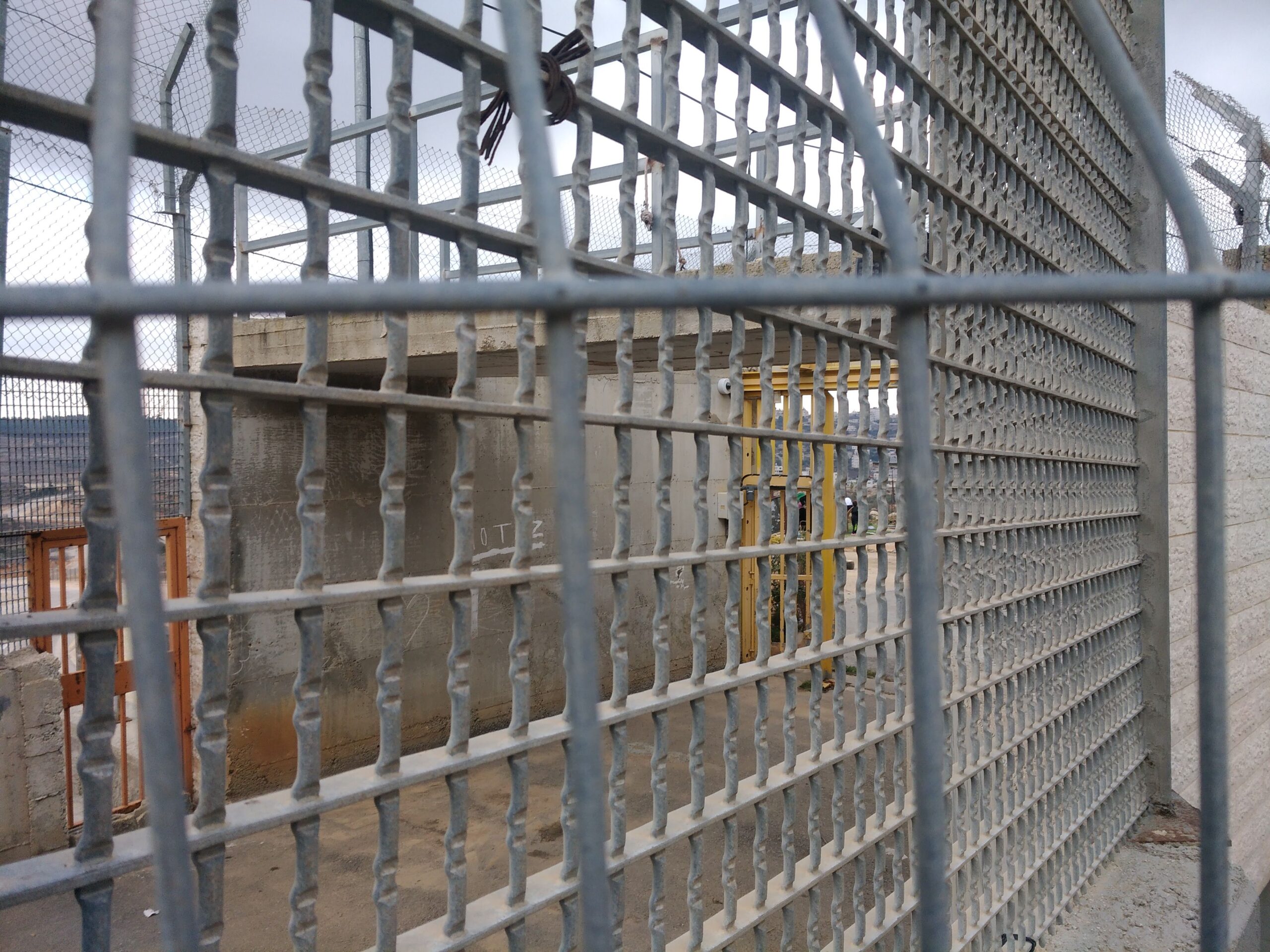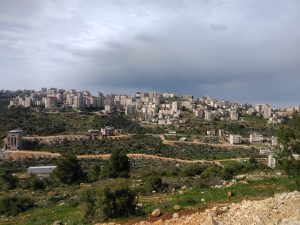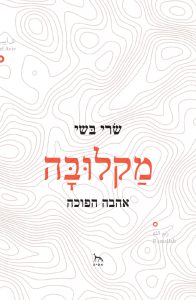I never consciously decided to speak Hebrew with my daughter, but it became a kind of connection between her and me, like our private language
“Imaaaaaaa!” As usual, Forat awoke screaming. Five in the morning. I was sitting near the door to the apartment, tying the laces on my running shoes. Osama sat at the kitchen table, sipping coffee and preparing a lecture he was planning to give that day. He glanced at me, got up from his chair and went into our bedroom, which Forat had entered in the middle of the night.
“Habibti, speak quietly, please.” There was another shout and then a furious sentence in amazingly precise Arabic:
“Inta, ismak Ima?” Forat screamed. You, is your name Ima?
Osama retreated from the bedroom. We burst out laughing.
“Are you still waiting for the day when she will want to murder you and marry me?” he asked.
“Maybe next year,” I offered. “Yalla, I’m going to run, bye!” He began to protest but I escaped out the door into the stairwell. I entered the morning quiet, the sleepy streets, the barking of stray dogs and here and there a passing taxi. Before Forat was born, I used to revel in morning runs, time to myself, when I wasn’t responsible to anyone. Since she was born, every run is an act of subversion, for which I must apologize to Forat, Adam and Osama.
“Be careful,” Osama would warn me, especially during the too-frequent incidents in which I lose patience with Forat. “She’s very attached to you.” As I ran, I tried to understand why Forat’s clinging to me in the morning – makes me angry. It had been nearly six years since she was born, but I still haven’t come to terms with the infringement on my freedom.
I returned an hour later, refreshed. We fed and dressed Forat and Adam.
“Owwwww!!” Forat screamed when I brushed her long hair into a ponytail. “Stopp!!!”
“Quiet!” I shouted. “You need to stop screaming!”
At the end of the day, I took Adam to collect Forat from kindergarten, which she had begun the week before. She was in the playground with the first grade girls. I tried to persuade her to climb down from the slide and get into the car.
“What language are you speaking with her?” asked six-year old Lian.
“Hebrew,” I said. I tried to meet Forat’s gaze, but she was busy with the water bottle in her hand, the one with the image of Hello Kitty.
“Shalom, Shalom!” Lian called in Hebrew, and the other two girls joined her. “Shalom, Shalom!”
I smiled at them, but I wondered how Forat experienced it. On the way home she was quiet, calm. She asked if we would take a bath that night and if she had to wash her hair.
At night, Osama and I sat around the kitchen table. We spoke softly to avoid waking the children.
“I think Forat likes the new kindergarten,” he said.
Forat’s kindergarten was in a new French school in the city, a joint venture between the French government and a Palestinian businessman. In addition to the local kids, children of foreigners and Palestinian children who had spent time abroad went to the school. A school for the children of elites. We hoped that Forat would be more accepted in a place where the children had experienced different parts of the world and different languages. Forat would now speak four languages: French would join Arabic, English and Hebrew.
I never made a conscious decision to communicate with Forat in Hebrew. I speak to Osama in English, and he speaks to the children in Arabic. I had thought about the language issue when I got pregnant with Forat, but she was born early, before we had a chance to make a lot of decisions. I was with her alone for a month in the NICU in Tel Aviv – we couldn’t get Osama a permit — and there, in an Israeli setting, it was natural for me to speak to her in Hebrew. I used to chat with her as she slept in my arms, connected to various monitoring devices. Later, Hebrew became a kind of connection between her and me, our private language. Talking to Forat also connected me to Israel, to the life in Tel Aviv that I left when I joined Osama on the other side of the Separation Wall. I was happy and surprised when Forat grew up and communicated naturally with my friends’ children during visits to Tel Aviv or with relatives at holiday meals. Hebrew was a kind of present I gave her and myself.
I told Osama about the first grade girls’ “Shalom, Shalom”.
“Lubna asked me if I really allow you to speak Hebrew in the street,” he said.
“Allow?”
“Yeah. And she’s supposed to be feminist.”
“Maybe she meant to say, how can you not see that it’s problematic,” I said.
“Probably,” Osama said. He swallowed. “I’ll tell you something. I hate it when you say, Sheket!” The Hebrew word for quiet.
I flushed. “It reminds you of the prison?”
“Yeah.”
Like many young Palestinian men during the First Intefada, Palestinian uprising, Osama improved his Hebrew in an Israeli prison. I now had another reason to stop screaming at Forat.
I remembered the first visit of friends from Ramallah after Forat came home from the hospital. When they heard me speaking to her in Hebrew, they froze. And then they burst into laughter. I assumed it was the first time they had heard someone speaking Hebrew with tenderness. When Forat was a baby, in public places in Ramallah/Al Bireh, I would speak to her softly. But when we returned from South Africa, where she had answered Osama and me in English only, she began to speak Hebrew, and loudly.
“Ima!” Forat would yell in the supermarket. “You didn’t buy me anything!”. I would cringe and look around us, trying to gauge reactions. I quickly realized, against all odds, that most passers-by didn’t recognize the Hebrew words. Beyond the impossibility of an Israeli woman being present in their neighborhood grocery, for them Hebrew was the language soldiers used to demand their ID cards at surprise checkpoints, when they were trying to get home. It had nothing to do with a dispute between a mother and daughter over whether to buy the lollipop.
“Are you sorry we came back from Philadelphia?” Osama asked.
“No. But I wonder if – maybe when – the day will come when Forat will be ashamed of me. I won’t blame her. She will have to forge her own way forward.” But we should build up her confidence, I thought. I should support her, even when she’s throwing a fit. Especially when she’s throwing a fit.
“Forat is a powerful girl,” Osama said, and rose from the table. On his way to the bedroom, he stopped and kissed my forehead. “She reminds me of someone.”
This post was also published at haaretz.com on January 15, 2020:



